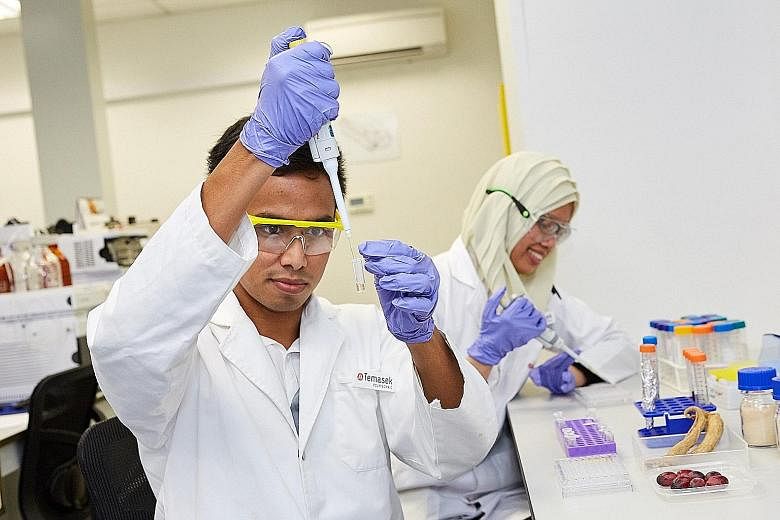Your grandmother who swears by traditional Chinese medicine (TCM) may now have proof that it actually works.
More local companies are working with Temasek Polytechnic to get its help to produce scientific proof to validate the benefits of such traditional health products.
For instance, this could mean identifying the chemicals that make a herbal brew good for the liver, or checking to see if a popular health supplement really contains antioxidants.
The school showcased its latest work in this field at its annual Applied Science Show held at its campus yesterday.
It gets several projects a month now, said Dr Ong Seng Poon, deputy director of capability development at the School of Applied Science, up from one project every few months when it first started.
In June, Temasek Polytechnic even set up a dedicated centre of innovation to study complementary health products with $3.2 million in funding from government agency Spring Singapore.
Its partners, which include household names such as the Eu Yan Sang TCM group, say having scientific backing for their traditional products opens the doors to new markets.
"It's a way to satisfy the younger consumers, because they want to know the science behind the medicines," said director Koo Chee Kai of Kim Sin Medicine Manufactory.
His company, which produces traditional medicines and health supplements, has worked with the polytechnic to identify certain chemical compounds in its popular Huji Waist Tonic - a concoction including herbs such as cordyceps.
"When the tests show that these chemicals are present, we can confidently say that it will have some impact on health," he said.
Mr Koo added: "Traditional Chinese medicine products are based on TCM theory, but now we are moving towards evidence-based medicine and we want to bridge the gap."
The centre of innovation, which also studies health supplements and food with healthy additives, is accredited by the Singapore Accreditation Council. This means it can potentially set standards for the industry as a whole, said Dr Lee Chee Wee, director of the School of Applied Science.
"It's an old industry which hasn't been truly modernised, and all these products require a lot of tests which smaller producers don't have the capabilities to carry out," he said. "If we can set a standard for complementary health products, that means we can basically become industry leaders."
Civil servant Jonathan Lim, 28, said having scientific backing for TCM treatments would make him more confident about consuming them. "If these products are corroborated by scientific proof, it means that I can have a clearer idea about the effects on my health," he said.


